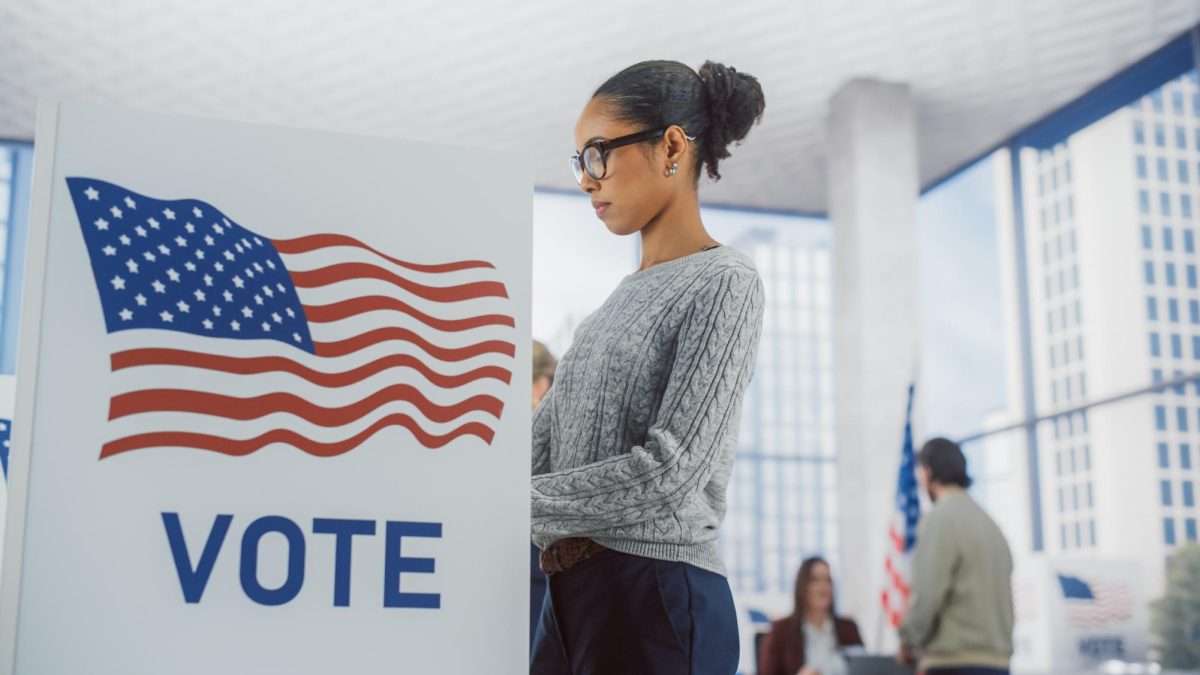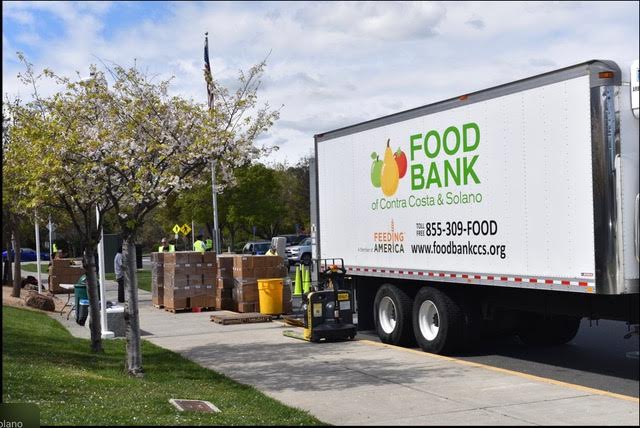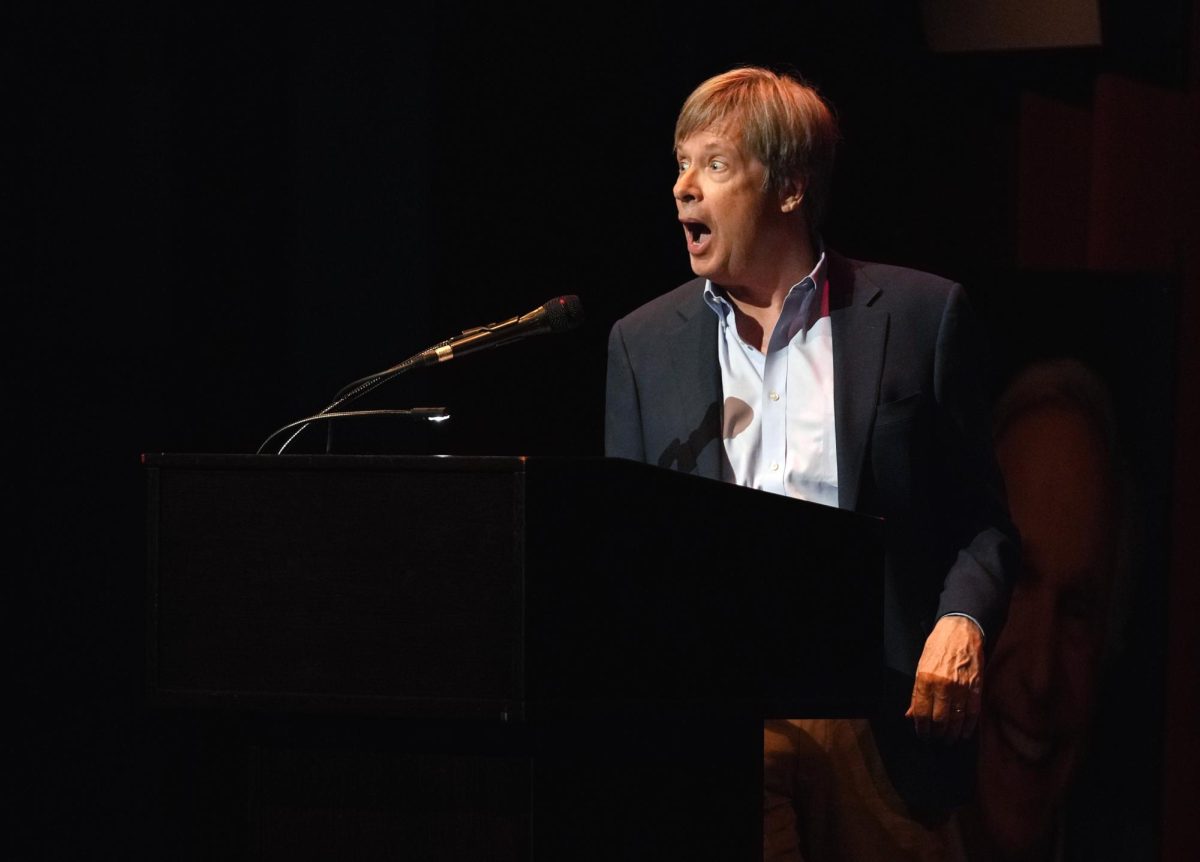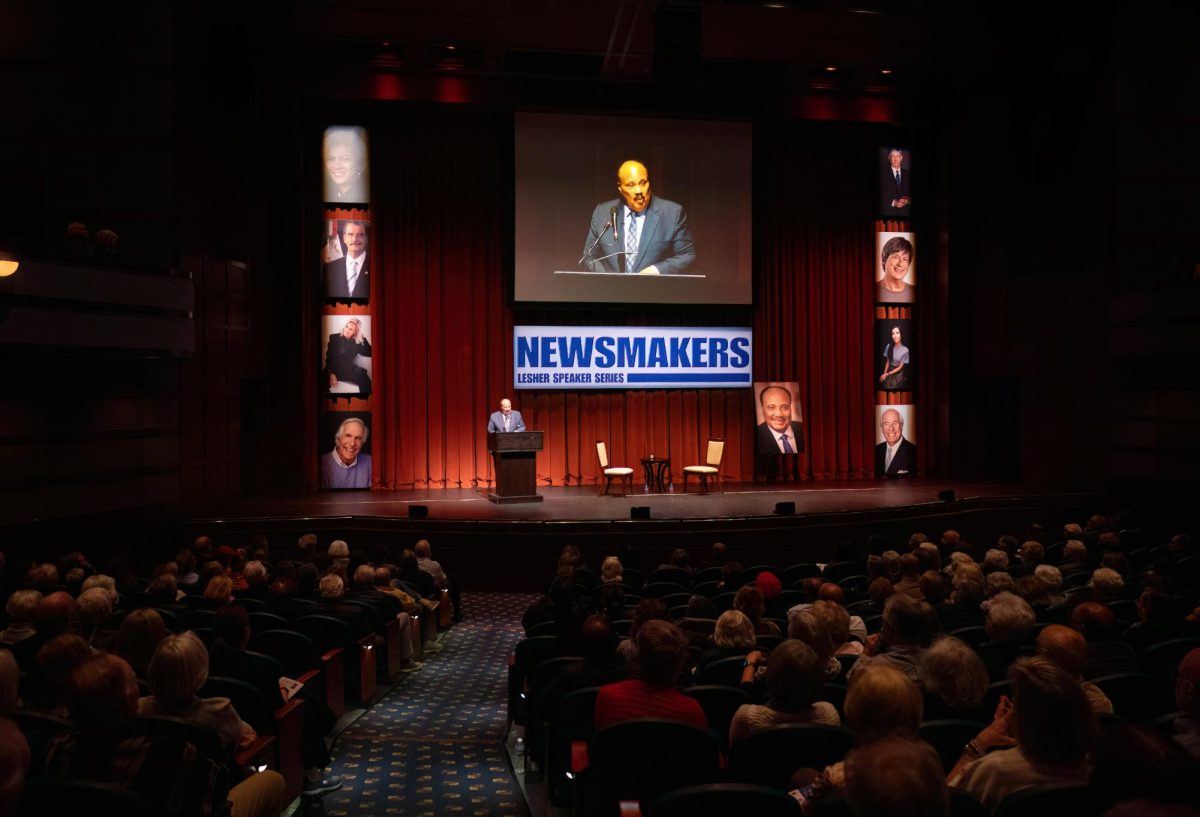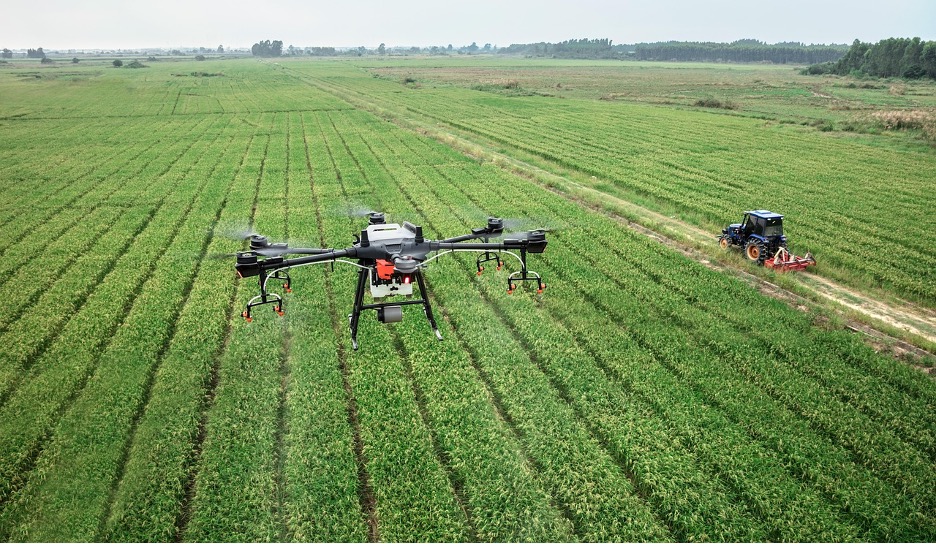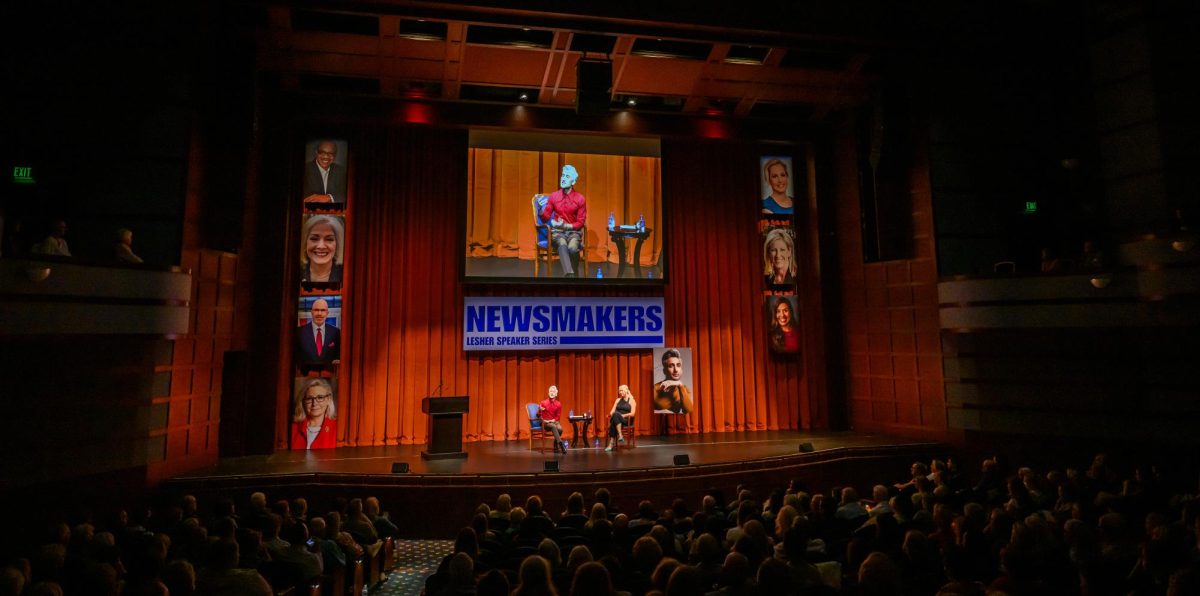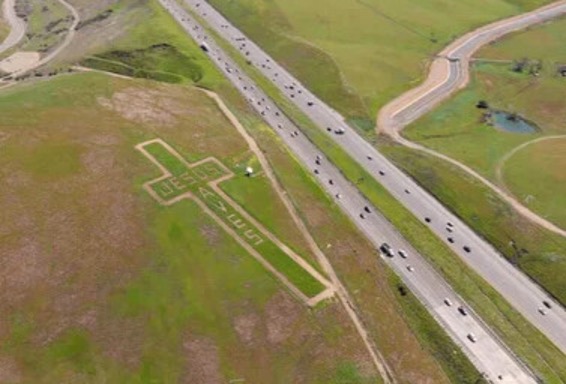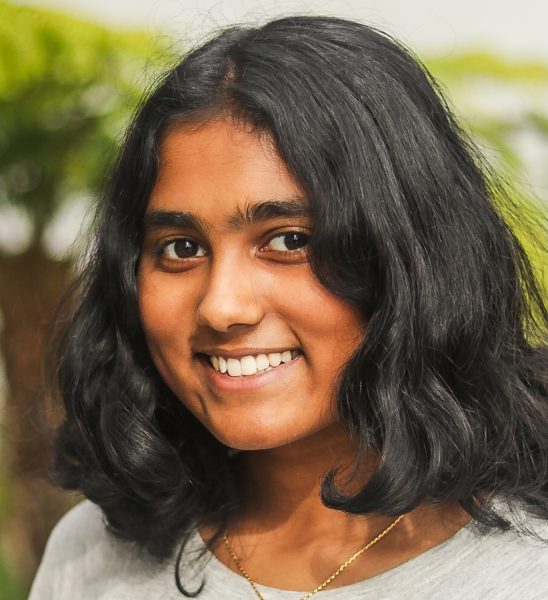The United States is becoming more and more polarized politically.
Recent studies show that more than 50% of Democrats and 60% of Republicans have a “very unfavorable” view of the other party, which is an increase from previous years. As polarization increases, the importance of voting becomes more significant for many groups of people.
One of these groups of people is America’s young people, whose voices are becoming more important when it comes to voting and civic participation. In the 2024 election, 42% of people age 18-29 voted, according to Tufts University research. This figure is a pretty significant decrease from the 2020 and 2016 elections, when between 52% and 55% of youth voted.
“I think, right now, students are feeling really pessimistic about their future, and I know that students are really concerned about the economy, about jobs, about housing, about all the things that are going to affect you in the coming years,” said Tasneem Khan, an American government teacher at California High School in San Ramon.
Khan emphasized the importance of youth voices in voting and how these decreasing numbers could negatively affect the country. Khan said many young people do not vote in elections because they feel neither of the candidates represent their political views and stances. She also noted that as political polarization increases, students could become more reluctant to take sides.
Khan earned California High School an award from National Voter Registration Day for the Most Voter Registrations in the county in 2017. As a teacher, Khan received this award by coordinating students to register to vote. National Voter Registration Day is a nationwide initiative to encourage more eligible citizens to register to vote.
“We need students to be more vocal because in the next election in 2028, approximately half the electorate is going to be young people,” Khan said. “They’re going to be your millennials and Gen Z people. The unfortunate thing is young people feel that their vote doesn’t matter.”
Many high school students who weren’t able to vote in the 2024 presidential election recognize the growing polarization in the country and want to make an impact by voting for a candidate they believe is best for the country.
Fabian Sotomayor, a 17-year-old junior at Dozier-Libbey Medical High School in Antioch, said being involved in politics despite not being able to vote helps him be more informed about issues that affect him.
“[Voting is] important because it’s your community, it’s what you want, it’s what your policies want to see happening,” Sotomayor said. “For me, I’m Latino, and so policies that are going against immigrants, I don’t want to see that. It’s important for me to vote for those things to make it so that it stops happening.”
Sotomayor said the increasing polarization causes students to move toward extremism, and that there should be a more diverse adoption of different viewpoints when it comes to politics.
“I understand that political polarization can happen, and what I like about democracies is that you have different people with different ideas about which is the best way,” Sotomayor said. “But when people are arguing about things that should be simple facts, and to make people think that the extremist side is the only side, [that is] a fallacy.”
Though Sotomayor is not old enough to vote, he plans on voting in the next elections.
“I would have voted for Kamala [Harris in the 2024 election], mostly because I agreed with her economic policy more,” Sotomayor said. “I think tariffs don’t really work a lot in our current modern age because we count a lot on foreign trade. I also would have voted for [Harris] because I agree more with her ideas.”
Other students agree that voting is something in which youth should be involved and interested, even if they’re not old enough to vote.
“I think students should definitely be able to vote because it’s important that different groups of people are represented in our voting process,” said California High School sophomore Sabrina Jackson Kimball, 16. “I think students can be a big part of that because they are going to be our future leaders. When I’m 18, I will definitely be voting.”
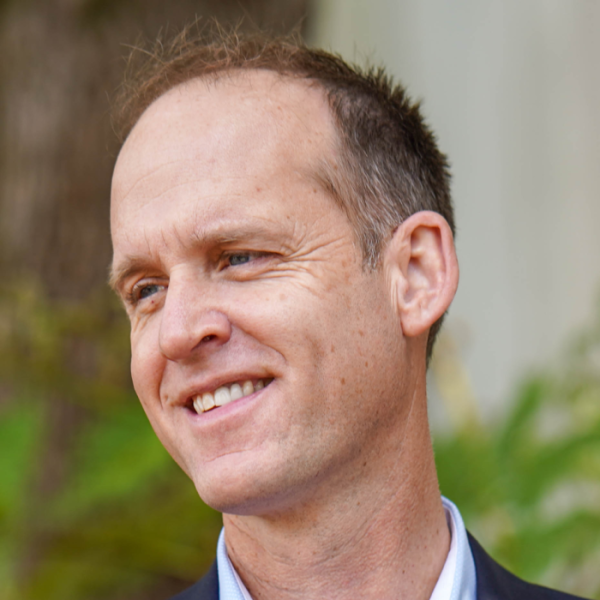
Corey Cook, a political science professor at Saint Mary’s College in Moraga, said while more college students are interested in voting, there is a growing interest in voting with mock votes in high schools. Because most high school students are not old enough to vote, certain schools host “mock votes” where students can informally “vote” for which political candidate they support.
Like the majority of the electorate, most young people are interested in national, large-scale elections, Cook noted.
“I think most college students, they vote more in national elections,” Cook said. “I think one of the things that I would always argue is that what happens locally probably matters more than folks realize. But young voters typically get mobilized and energized around big national elections.”
Cook explained that young people tend to think that voting in national elections would have a bigger impact than voting in local elections, and that their voice would be more amplified in a national election. But Cook said that a greater impact happens at the local level.
Khan agreed, saying the idea of voting and having a voice is attractive to youth who are interested in making an impact. She said all youth should be involved in voting.
“If the only thing that you do is say, ‘You know what, let’s go out and vote,’ and you drag all your friends with you to vote, you have just done something positive,” Khan said. “You have just served the public in a very, very important way, and I think everybody should do that, inspire each other and say, ‘Let’s go out, let’s vote.’”
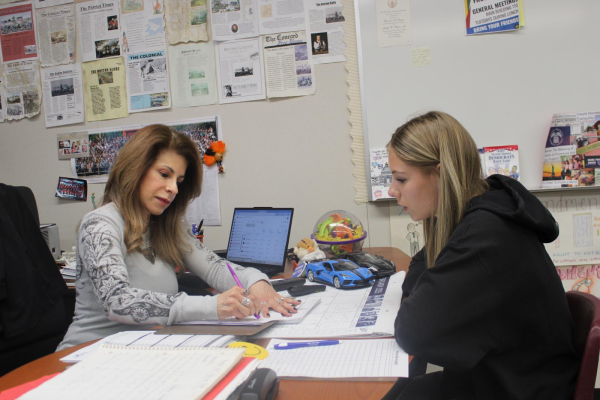
Gina Germano, a 12th grader at California High School who voted in the 2024 election, agreed, saying that voting is a good way for people to share their voice.
“It’s a privilege to be able to vote, and it’s kind of crazy because I get to put my voice out and just in general, voting is definitely important,” Germano said. “You’re still putting your voice out there, and by doing that, you’re still making some kind of change.”
Khan said many students refrain from voting because they don’t support candidates from either of the two major political parties
“This last election, everybody was like, ‘I’m not voting for anybody. I don’t like anybody. I’m not voting for them,’” Khan said. “It was a kind of a different level where it was all of a sudden they didn’t believe in any of them. They don’t speak [the student’s] voice. [The student is] not going to vote.”
Some students acknowledge that many of their peers refrain from voting because they don’t want to speak up, while others might not have strong opinions or be informed enough on political issues.
“I understand some students just don’t want to act out in protest, but I do think we should always just be a little bit informed about what’s going on, just to make sure that we are understanding what’s going on our current world that you’re going to go into eventually,” Sotomayor said.
Cook said while voting is important, the impact that many youth desire to make is achieved more through local service.
“The way of getting young people to really recognize the difference they can make through public service is really through local work, it’s not so much the national stuff,” Cook said. “I’m not saying they shouldn’t vote in national elections, but a lot of my work has been trying to get students involved in things that are happening locally, whether that’s working in nonprofits or advocacy campaigns or other things.”
Teachers like Khan and Cook are doing a lot in their classrooms to encourage students to vote, such as incorporating modern day politics into government classes and introducing activities that help students better understand the election process.
Khan coordinates and helps students preregister and register to vote.
“Hopefully in the next election, I’m going to have the election people come out here and just hit the classrooms and get people to sign up and register to vote,” Khan said. “I coordinate that every year. I’ve been doing it for years.”
To get his students more involved in community service and the impact it can have locally, Cook takes his students on field trips to learn about political activism.
“In a lot of my classes, I have partnerships with community organizations that [students are] working with,” Cook said. “I have a class that focuses on the history of political activism in communities in the Bay Area, so they learn about the history of the Black Panthers and movement for Indigenous sovereignty and gay rights movements.”
Cook said the main goal is to get students’ voices heard and get students more involved in making an impact.
“For me, it’s about creating opportunities for students to be out in the community and get to know more is going on locally,” Cook said.
Keerthi Eraniyan is a 10th grader at California High School in San Ramon. This story was made possible by support from the Lesher Foundation, its Newsmakers speaker series, and the Bay City News Foundation. Stories are produced independently by the CCYJ news team.

